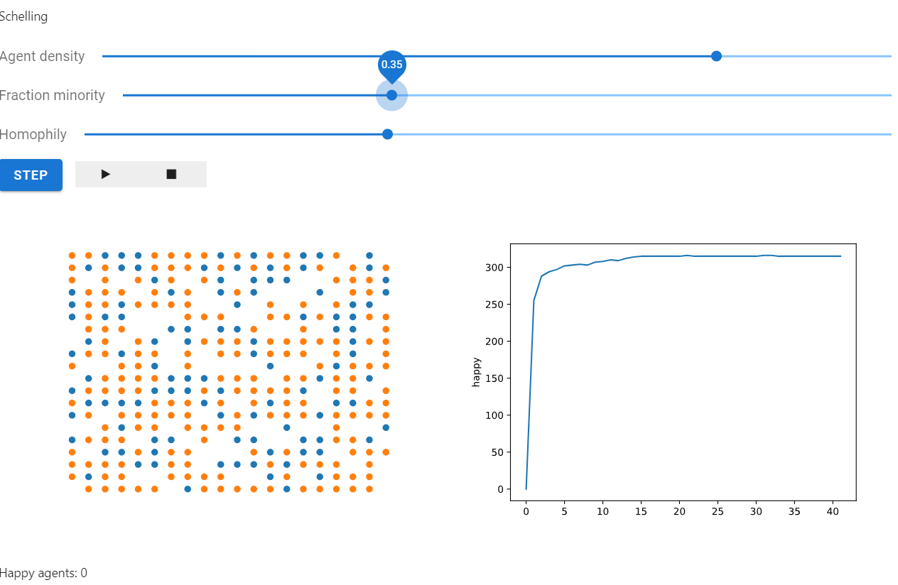

Mesa is an Apache2 licensed agent-based modeling (or ABM) framework in Python.
Mesa allows users to quickly create agent-based models using built-in core components (such as spatial grids and agent schedulers) or customized implementations; visualize them using a browser-based interface; and analyze their results using Python's data analysis tools. Its goal is to be the Python 3-based counterpart to NetLogo, Repast, or MASON.
Above: A Mesa implementation of the Schelling segregation model, being visualized in a browser window and analyzed in a Jupyter notebook.
- Modular components
- Browser-based visualization
- Built-in tools for analysis
Getting started quickly:
$ pip install mesaTo launch an example model, clone the repository folder and invoke mesa runserver for one of the examples/ subdirectories:
$ mesa runserver examples/wolf_sheepFor more help on using Mesa, check out the following resources:
If you run into an issue, please file a ticket for us to discuss. If possible, follow up with a pull request.
If you would like to add a feature, please reach out via ticket or the email list for discussion. A feature is most likely to be added if you build it!
ABM features users have shared that you may want to use in your model
.. toctree:: :hidden: :maxdepth: 7 Mesa Overview <overview> tutorials/intro_tutorial tutorials/adv_tutorial Best Practices <best-practices> Useful Snippets <useful-snippets/snippets> API Documentation <apis/api_main> Mesa Packages <packages>
